Filter by
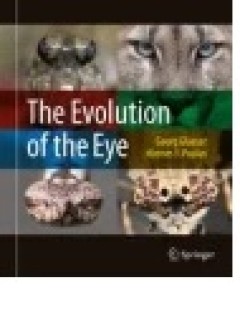
The Evolution of the Eye
With fascinating, spectacularly beautiful images, the book piques readers’ curiosity about the diversity of visual organs. This book is the result of a dual approach – scientific as well as aesthetic. The compelling images are accompanied by an easy-to-read, understandable text, aimed at both scientists and the educated public, and generally anyone interested in the beauty of nature. Thanks…
- Edition
- -
- ISBN/ISSN
- 978-3-319-17476-1
- Collation
- XVI, 214
- Series Title
- -
- Call Number
- -
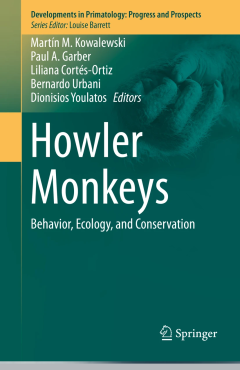
Howler Monkeys: Behavior, Ecology, and Conservation
Howler monkeys (genus Alouatta) comprise twelve species of leaf-eating New World monkeys that range from southern Mexico through northern Argentina. This genus is the most widespread of any New World primate taxa, and can be found to inhabit a range of forest types from undisturbed rainforest to severely anthropogenically impacted forest fragments. Although there have been many studies on indiv…
- Edition
- -
- ISBN/ISSN
- 978-1-4939-1959-8
- Collation
- XIX, 440
- Series Title
- -
- Call Number
- 540 HOW
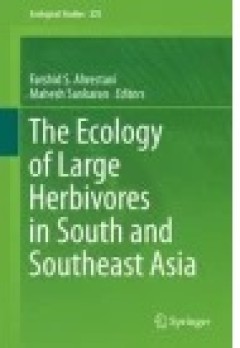
The Ecology of Large Herbivores in South and Southeast Asia
This volume presents, for the first time, a collection of studies on the ecology of the rich and diverse large herbivore assemblages of South and Southeast Asia. Prepared by experts on herbivores of the region, it covers a comprehensive range of topics, including their evolutionary history, behavioural, nutritional, and population ecology, patterns of diversity across environmental gradients, r…
- Edition
- -
- ISBN/ISSN
- 978-94-017-7570-0
- Collation
- VIII, 257
- Series Title
- Ecological Studies
- Call Number
- -

The Ecology of Animal Senses
The collection of chapters in this book present the concept of matched filters: response characteristics “matching” the characteristics of crucially important sensory inputs, which allows detection of vital sensory stimuli while sensory inputs not necessary for the survival of the animal tend to be filtered out, or sacrificed. The individual contributions discuss that the evolution of sensi…
- Edition
- -
- ISBN/ISSN
- 978-3-319-25492-0
- Collation
- X, 269
- Series Title
- -
- Call Number
- -
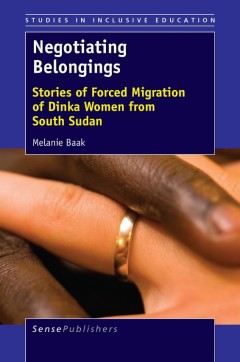
Negotiating Belongings : Stories of Forced Migration of Dinka Women from Sout…
Belonging is an issue that affects us all, but for those who have been displaced, unsettled or made ‘homeless’ by the increased movements associated with the contemporary globalising era, belonging is under constant challenge. Migration throws into question not only the belongings of those who physically migrate, but also, particularly in a postcolonial context, the belongings of those who …
- Edition
- 1st Edition
- ISBN/ISSN
- 978-94-6300-588-3
- Collation
- XX, 232
- Series Title
- Studies in Inclusive Education
- Call Number
- 304.8 BAA n

Extremophile Fishes Ecology, Evolution, and Physiology of Teleosts in Extrem…
This book summarizes the key adaptations enabling extremophile fishes to survive under harsh environmental conditions. It reviews the most recent research on acidic, Antarctic, cave, desert, hypersaline, hypoxic, temporary, and fast-flowing habitats, as well as naturally and anthropogenically toxic waters, while pointing out generalities that are evident across different study systems. Knowledg…
- Edition
- -
- ISBN/ISSN
- 978-3-319-13362-1
- Collation
- 14 b/w illustrations, 16 illustrations in colour
- Series Title
- -
- Call Number
- -

Exploring Studbooks for Wildlife Management and Conservation
Many endangered species of wild animals are managed in captivity through studbooks. In this book these data-rich resources are mined in innovative, integrated and statistically tested ways to maximise information gain for conservation practice – whether for captive or released/reintroduced or managed wild populations. This book is thus an important tool for all species managers, and for stude…
- Edition
- -
- ISBN/ISSN
- 978-3-319-50032-4
- Collation
- 79 b/w illustrations
- Series Title
- -
- Call Number
- -
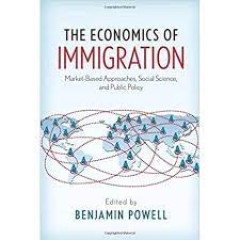
Economics of Immigration
Poverty, famines, wars, and ethnic conflicts lead to large movements of refugees. The papers in this book provide an analysis of the economics of immigration. Junankar discusses why people migrate, the likely destinations for migrants, and their employment in the destination countries. He studies the benefits to the migrant families in terms of higher wages and living standards, and also studie…
- Edition
- 1
- ISBN/ISSN
- 978-1-349-71716-3
- Collation
- -
- Series Title
- -
- Call Number
- XVII, 344
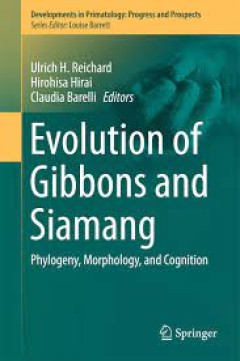
Evolution of Gibbons and Siamang Phylogeny, Morphology, and Cognition
This volume provides insight into gibbon diet and community ecology, the mating system and reproduction, and conservation biology, all topics which represent areas of substantial progress in understanding socio-ecological flexibility and conservation needs of the hylobatid family. This work analyzes hylobatid evolution by synthesizing recent and ongoing studies of molecular phylogeny, morpholog…
- Edition
- -
- ISBN/ISSN
- 978-1-4939-5614-2
- Collation
- 42 b/w illustrations, 18 illustrations in colour
- Series Title
- -
- Call Number
- -
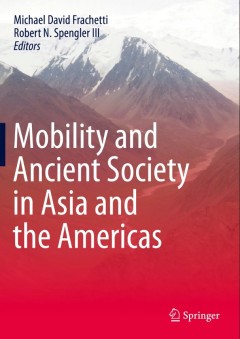
Mobility and Ancient Society in Asia and the Americas
Mobility and Ancient Society in Asia and the Americas contains contributions by leading international scholars concerning the character, timing, and geography of regional migrations that led to the dispersal of human societies from Inner and northeast Asia to the New World in the Upper Pleistocene (ca. 20,000-15,000 years ago). This volume bridges scholarly traditions from Europe, Central Asia,…
- Edition
- 1
- ISBN/ISSN
- 978-3-319-15137-3
- Collation
- XIII, 202
- Series Title
- -
- Call Number
- -
 Computer Science, Information & General Works
Computer Science, Information & General Works  Philosophy & Psychology
Philosophy & Psychology  Religion
Religion  Social Sciences
Social Sciences  Language
Language  Pure Science
Pure Science  Applied Sciences
Applied Sciences  Art & Recreation
Art & Recreation  Literature
Literature  History & Geography
History & Geography